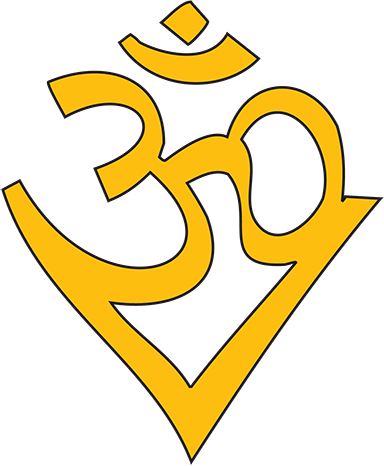Article published in India Link Magazine February-March 2008
Mahatma Gandhi vs Nelson Mandela – Response to the article by Krishan Tyagi
by Nitin Mehta
Krishan Tyagi’s article, Mahatma Gandhi vs. Nelson Mandela in which he accuses Gandhi of many things does not stand up to closer scrutiny. He first draws parallels between India’s struggle for Independence and that of South Africa. He claims that while Nelson Mandela was able to avert the break up of his country, Gandhi was not. If there was anyone who tried to stop the division of India, it was Gandhi. He even offered Jinnah the prime minister’s position in an undivided India. The call for a separate land for Muslims had gained a momentum which no one could have stopped. Mr Tyagi fails to suggest who would have been able to stop the partition. He then moves onto conclude that the partition could not be avoided because of the non violent campaign that Gandhi adopted to free India of British rule. How this was the cause of partition he fails to explain. He then goes onto give an account of how Mandela resorted to armed struggle with creation of , ‘ Umkhonto We Sizwe’- ‘ Spear of the nation’. The crucial question is whether it was a violent guerilla warfare that eventually brought South Africa its freedom or not. The guerilla warfare lasted almost 30 years. However the world opinion had gradually changed solidly against the apartheid regime. South Africa was expelled from the Commonwealth, there was a trade embargo, South African goods were being boycotted by millions of people. London was hub of anti apartheid activities; the pressure on the regime was relentless. President Botha had to come to the negotiating table. It is therefore a sweeping claim to make that it was only violent struggle that brought down the apartheid regime. That Gandhi is held in the highest esteem by Nelson Mandela and all other South African leaders is well recorded. Gandhi inspired the South African leaders and Mandela’s years in prison were spent on Gandhian principles. He realized as Gandhi did that it was the unjust system that had to be opposed and this had to be done without hating the individuals who were perpetrating the injustice.
Krishan Tyagi then tackled the Indian independence struggle under Gandhi. He questioned the significance of the Dandi march. This is strange to say the least. The Dandi march mobilized the masses of India, at a stroke the nation was united at the injustice of colonial rule. After centuries of slavery the nation which unlike South Africa was a subcontinent rather than a country, was beginning to demand self rule and justice. Mr Tyagi seems to think that all the struggles from 1930 to 1945 achieved little. He claims that it was the Indian National Army under the leadership of Subash Chandra Bose that finally got the British to leave. Subash Chandra Bose, Veer Savarkar, Bhagat Singh and countless individuals contributed to the freedom struggle and they are an essential part of the eventual independence of India. However it is a fact that Subash Bose’s army was no match to the mighty British forces on the battlefield. Mr Tyagi’s claim that India would have got its freedom in 1922 had Gandhi not called off the Non- Cooperation movement. On the other hand, had the movement turned violent, it could have been crushed ruthlessly just as it was in 1857. It was Gandhi who ensured that the Dalits were not given a separate status from Hindus and that the Sikhs remained part of the Indian nation. India could have broken into many pieces if Sardar Vallabhbhai Patel as a Home minister had not brought all the Maharaja’s into the Indian union. Sardar Vallabhbhai and millions like him had joined the freedom struggle-and their Guru and guide was Gandhiji. It is difficult to imagine what India would have been like without Gandhi.
After South Africa’s independence it was the reconciliation ideal-very much a Gandhian principle that avoided bloodshed and revenge. Gandhiji’s non violent method has been tried by many other movements successfully. The powerful communist regime of Poland and the whole of the communist world collapsed through non-violent agitation. The civil rights of African-Americans were won by non-violent means. Here is what Martin Luther said on receiving the Nobel Peace Prize: ‘Violence solves no problems: it merely creates new ones. Violence is impractical because it is a descending spiral, ending in destruction for all. It is immoral because it seeks to humiliate the opponent rather than win his understanding. Non violence is a powerful and just weapon. Indeed it is a weapon unique in history, which cuts without wounding and ennobles the man who wields it.’ Gandhi’s legacy of non-violence has kept India united, whenever enormous political and social issues surface, Indians go on a fast or take part in non-violent agitation rather than resort to violence. Looking at immense conflicts going on in Pakistan and Bangladesh one can be forgiven to think that partition was the best thing that happened! Gandhi’s non-violence was not the non-violence of a coward. It took sheer guts to stand upto the injustices suffered by Indians in South Africa and later in India. It is a shame that Krishan Tyagi sees Gandhi’s non violent struggle as some kind of weakness. It is futile to say that Nelson Mandela succeeded and Gandhi failed. Both succeeded against overwhelming odds and the Indian nation is on the move, the British Raj is a distant memory. This ancient civilization was never crushed. It has reshaped and its influence is being felt far and wide. It is little wonder that Gandhi was declared the greatest personality of the 20th Century.

Recent Comments